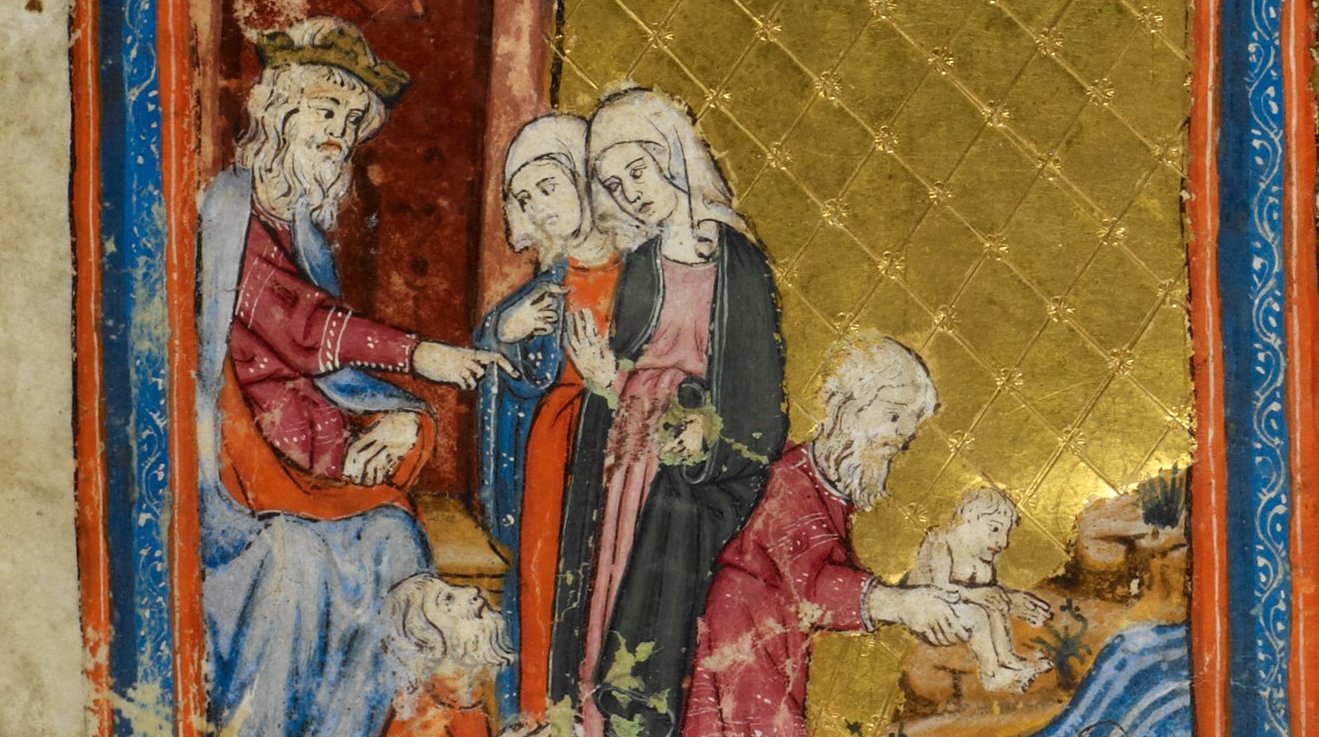Commentary on Parashat Shemot, Exodus 1:1-6:1
Parashat Shemot finds the Israelites facing a bitter life of slavery in Egypt. Yet despite the severity of their labors, the people of Israel are increasing their number at an astonishing rate. Pharaoh’s plan to weaken the people through harsh rule and forced labor has the opposite of its intended effect; in fact, “the more they were oppressed, the more they increased and spread out, so that the [Egyptians] came to dread the Israelites” (Exodus 1:12).
In a desperate attempt to cut off this astonishing capacity to multiply, Pharaoh approaches Shifra and Puah, two Hebrew midwives. The verses below record an act of resistance on the part of these women:
(15) The king of Egypt spoke to the Hebrew midwives, one of whom was named Shifra and the other Puah,
(16) saying, “When you deliver the Hebrew women, look at the birth stool: if it is a boy, kill him; if it is a girl, let her live.”

Help us keep Jewish knowledge accessible to millions of people around the world.
Your donation to My Jewish Learning fuels endless journeys of Jewish discovery. With your help, My Jewish Learning can continue to provide nonstop opportunities for learning, connection and growth.
(17) The midwives, fearing God, did not do as the king of Egypt had told them; they let the boys live.
(18) So the king of Egypt summoned the midwives and said to them, “Why have you done this thing, letting the boys live?”
(19) The midwives said to Pharaoh, “Because the Hebrew women are not like the Egyptian women: they are vigorous. Before the midwife can come to them, they have given birth.”
(20) And God dealt well with the midwives; and the people multiplied and increased greatly.
(21) And because the midwives feared God, He established households for them.
Your Torah Navigator
1. Why do you think Pharaoh finally approaches Shifra and Puah directly?
2. Why do the midwives choose to obey religious authority rather than political authority?
3. Shifra and Puah say that, as opposed to Egyptian women, the Hebrew women give birth before the midwife can even arrive. Do Shifra and Puah risk insulting the Pharaoh’s intelligence when they make this comparison? Is the risk worth it?
4. Verse 20 revisits the idea of the Israelites multiplying. Why might God have rewarded the midwives by establishing households for them?
A Word
Think of the connections between birthings and beginnings in this parashah. Sh’mot begins by emphasizing the fertility and prolific birthrates of the people of Israel; the text makes it quite clear that the Israelites have an uncanny ability to bring new life into the world. In other words, even as the Egyptians try unsuccessfully to hasten the ending of the Israelites’ lives, the Israelites respond by ushering even more beginnings into the world. At the start of this parashah and the book of Exodus, the people of Israel are portrayed as living in the face of dying, beginning in the face of ending.
Consider, then, the special position of Shifra and Puah in these initial verses of Exodus. Significantly, the Book of Exodus begins with an overt act of political defiance by two women who are themselves serving the enslaved Israelites. Yet these women, seemingly in a subservient position to a subservient people, enter into a high-stakes power play with the king of the ruling nation! This fact, in and of itself, sets the stage for the eventual and ultimate defiance of Pharaoh by the Israelites.
Further, it is no coincidence that midwives are the featured players in this episode. In their everyday lives, Shifra and Puah literally aid the birthing process of individual women. In their refusal to obey Pharaoh, they assume a key role in the collective birthing of the people of Israel. Fearing God rather than the political authority of the day, Shiphrah and Puah are rewarded for their insistence on life rather than death. As the Talmud says: “It was the reward of the righteous women of that generation that caused Israel to be redeemed from Egypt.” (Tractate Sotah 11b).
Provided by Hillel’s Joseph Meyerhoff Center for Jewish Learning, which creates educational resources for Jewish organizations on college campuses.
Torah
Pronunced: TORE-uh, Origin: Hebrew, the Five Books of Moses.

Help us keep Jewish knowledge accessible to millions of people around the world.
Your donation to My Jewish Learning fuels endless journeys of Jewish discovery. With your help, My Jewish Learning can continue to provide nonstop opportunities for learning, connection and growth.



